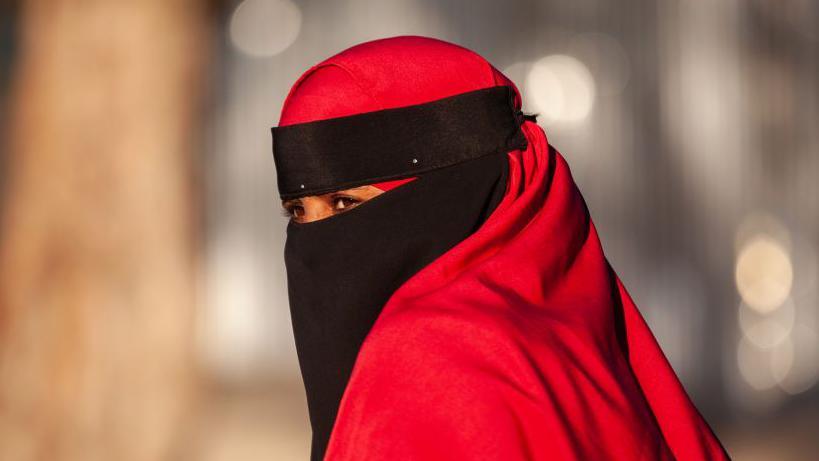Somali police seize hundreds of veils amid security fears

Women are banned from wearing the face veil in Somalia's Kismayo city
- Published
Security forces in Somalia's southern city of Kismayo have seized hundreds of Islamic face veils from female residents, the city's police chief says.
Warsame Ahmed Gelle told state TV that authorities have been conducting operations to "fight" the veils, also known as niqabs.
The crackdown was sparked by concerns that jihadists could conceal their identity and carry out attacks, Mr Warsame said.
Large parts of southern and central Somalia are controlled by al-Shabab, which is affiliated to al-Qaeda and has waged a brutal insurgency for nearly 20 years against the UN-backed government in Somalia.
On Friday dozens were killed in an attack at a popular beachfront location in Mogadishu, the capital.
Officers in Kismayo have been confiscating the veils by stopping women in the streets and forcing them to remove the garment.
The operation began last Wednesday, Mr Wasame said.
Women caught wearing the niqab, which covers the whole face expect for the eyes, also face jail or a fine.
Because al-Shabab controls much of southern Somalia, Kismayo and its surrounding areas are the only places in the state of Jubaland where authorities can enforce the ban.
The state initially introduced the niqab ban in 2013, citing security risks, but it was rarely enforced.
Niqabs are seen as a sign of modesty in Islam - a religion which, according to government statistics, is practised by 99% of Somalia's population.
Many women there wear the niqab and Mr Wasame said the garment had increased in popularity recently.
However most Somali women still opt for the hijab, which covers a woman's hair but not her face.
The police said at least 37 people were killed during Friday's beachfront attack and several more were wounded.
Al-Shabab, who claimed responsibility for the attack, said the death toll and injuries are much higher than figures released by the police.
The Somali military recently killed dozens of jihadist fighters in Jubaland so reprisal attacks are a possibility.
Additional reporting by Abdishukri Haybe
You may also be interested in:

Go to BBCAfrica.com, external for more news from the African continent.
Follow us on Twitter @BBCAfrica, external, on Facebook at BBC Africa, external or on Instagram at bbcafrica, external